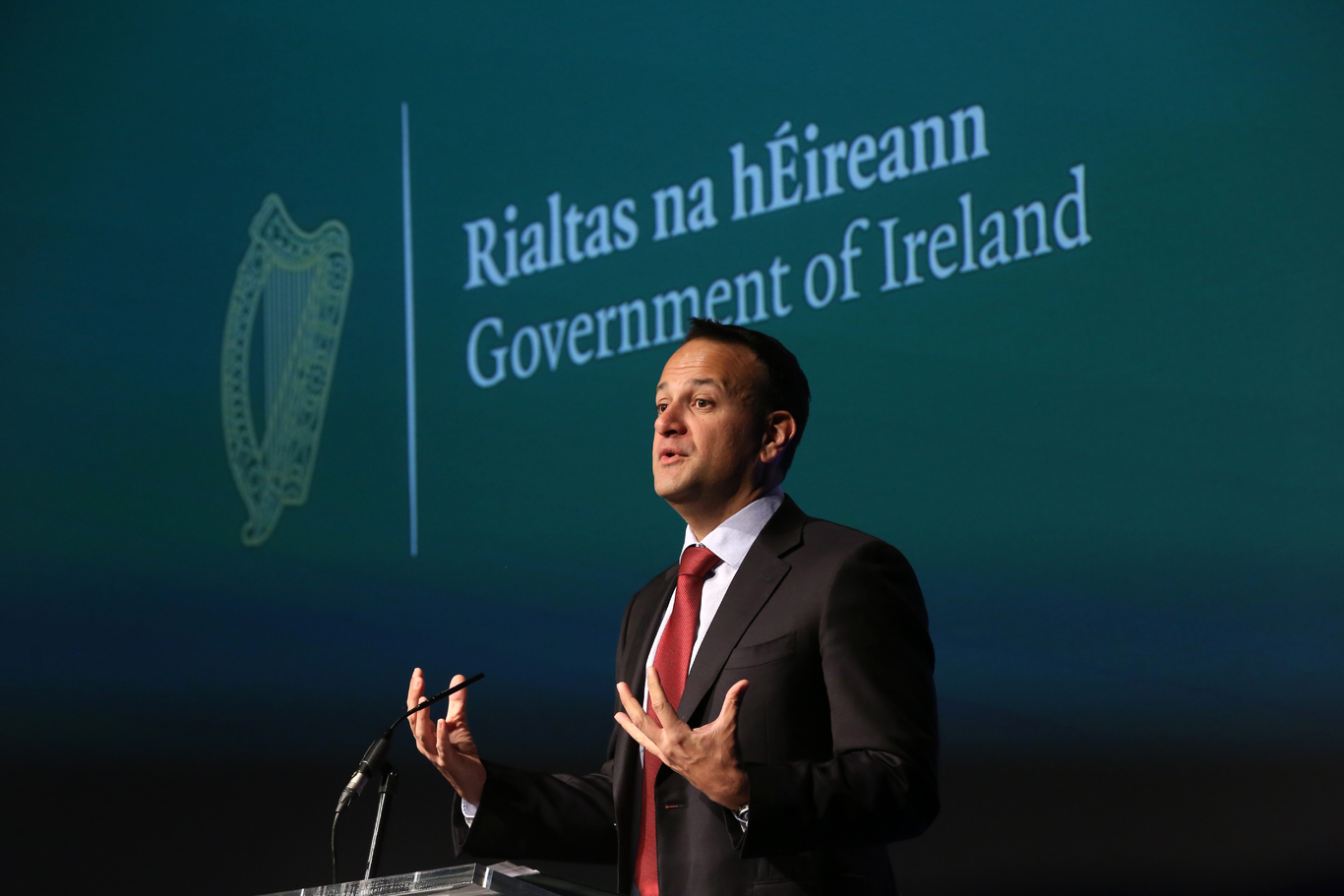The Irish have a powerful ability to sniff out claptrap - that's why puff pieces don't work
There’s a lesson in the scandal surrounding the Project 2040 communications strategy.
“IT’S MY VIEW that good communications is a virtue,” Taoiseach Leo Varadkar said on Tuesday, describing his government’s publicity campaign for the landmark Project Ireland 2040.
“The government needs to do more to let people know what they are doing.”
He’s not wrong. But what should have been an entirely positive announcement has been marred in controversy amid accusations that the new Strategic Communications Unit has misused public funds by purchasing ‘advertorials’ in local media – advertisements made to look like genuine newspaper pieces written by journalists.
There’s nothing inherently wrong with advertorial. For companies selling niche products and services that would otherwise be difficult to promote ‘organically’, an 800-word advertorial is a clever way to dress up marketing copy as journalism.
But they’re read less often and for less time compared to traditional editorial, and shrewd readers see them for what they are. When a government uses them, particularly to promote a massive capital investment plan, it looks cynical and inauthentic.
Firefighting
When I was a government adviser, the vast majority of my time was spent firefighting, reactively grappling with issues as they arose. The moment-to-moment nature of the job made it difficult to engage in long-term communications programmes and proactively promote new State initiatives.
The Strategic Communications Unit is a remedy for that, and a much-needed one. Money absolutely does need to be invested communicating value to the general public.
But on this occasion however, by spending on advertorial, they made a mistake. This was a missed opportunity to communicate the benefits of a major project in an effective way.
The government has a natural advantage: it is the government. It is interesting by default. The Taoiseach is popular, charismatic and an effective communicator, and so are many of his cabinet colleagues.
Project Ireland 2040, too, is significant. It presents an ambitious vision for a modern and dynamic Ireland, with new schools, new hospitals, new roads, urban and rural regeneration and job creation.
Regardless of any scepticism you might have about the government’s ability to actually implement the plan, a skilled communications team should have absolutely no difficulty pitching these stories to media.
Authencity
Make no mistake, surrendering control of a story to a journalist can be intimidating. Being pilloried in the press is every leader’s worst nightmare, whether you’re running a business or a government department.
An advertorial, in contrast, allows you to keep a firm grip on the reins. But it comes at a cost: your authenticity. Readers are more likely to skim over your piece, especially if they see that little ‘sponsored content’ label. After all, no one likes a pushy salesman.
A truly good story, however, has intrinsic value. A journalist will want to talk to you about it. Sure, they might ask you some tough questions, but ultimately the strength of your message will be clear. You’ll demonstrate realness and relatability.
Your brand – whether that’s your own personal brand or your organisation’s – will also be associated with a respected journalist and their publication.
Authenticity, credibility and transparency are the main goals of modern business and communications. Strong and consistent messaging that addresses, rather than dodges, the challenging questions head on is the only way to achieve them.
The Irish business world is full of leaders who have eschewed short-term hits for a long-term, brand-building communications strategy, even when a quick burst of positive publicity might have looked or at least felt better.
Take Francesca McDonagh, the new chief executive of Bank of Ireland, who has very publicly acknowledged the bank’s failings and its need to do better.
Pat McCann, CEO of hotel group Dalata, defended rising hotel room prices despite popular opinion. HSE head Tony O’Brien has admitted shortcomings in the health service, clearly explained its problems, and weathered storms of criticism.
Exceptional leaders like Michael O’Leary are so adept at communicating that they essentially use the media for free publicity.
These people stand out. They’re genuine, authentic, and earn kudos for humanising debate. People prefer real opinions from real people, even when they disagree with them.
Irish people have a powerful innate ability to sniff out claptrap – incessant sloganeering, contrived puff pieces and robotic spokespeople simply do not resonate. The Taoiseach knows that better than anyone.
While we should always be looking for new and innovative ways to connect and engage with our audiences, it’s important to remember that communications is a long game.
Demonstrating the value of Project Ireland 2040, like building up a brand reputation, will take years, not weeks or months. Don’t trade in your credibility for a shortcut.
Dan Pender is the managing director of PR360.






